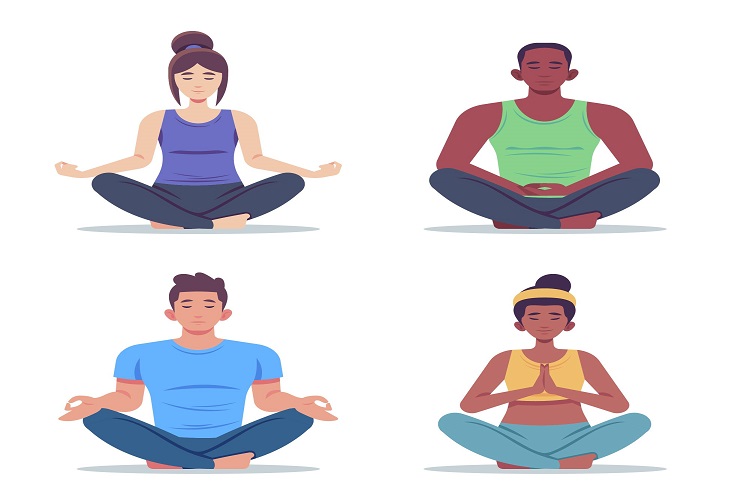Sleep meditation techniques
Best meditation for sleep is a powerful practice that can help calm the mind, reduce stress, and promote overall well-being. When it comes to getting a good night's sleep, incorporating meditation into your bedtime routine can be incredibly beneficial. In this article, we will explore some of the best meditation techniques specifically designed to promote deep and restful sleep.
Mindfulness meditation
Mindfulness meditation involves bringing your attention to the present moment without judgment. This practice can be particularly useful for those who have racing thoughts or find it difficult to relax before bed. By focusing on your breath and bodily sensations, you can cultivate a sense of calm and let go of any worries or stressors.
Progressive muscle relaxation
Progressive muscle relaxation is a technique that involves systematically tensing and relaxing different muscle groups throughout the body. By consciously releasing tension in each muscle group, you can induce a state of deep relaxation and prepare your body for sleep. This technique can be especially helpful for individuals who carry tension in their bodies or suffer from muscle pain.
Body scan meditation
The body scan meditation involves mentally scanning your body from head to toe, paying attention to any sensations or areas of tension. As you bring awareness to different parts of your body, you can consciously release any physical or mental tension you may be holding onto. This practice promotes relaxation, grounding, and can help you unwind before bed.
Loving-kindness meditation
Loving-kindness meditation, also known as metta meditation, involves cultivating feelings of love, compassion, and goodwill towards yourself and others. This practice can create a sense of emotional warmth and connection, which is particularly beneficial for individuals who struggle with racing thoughts, anxiety, or feelings of restlessness at night.
Guided sleep meditation benefits
Guided sleep meditation refers to a form of meditation where you listen to an audio recording or a guided meditation teacher who provides instructions and relaxation cues to help you drift off to sleep. This form of meditation can offer numerous benefits for individuals who struggle with insomnia or have difficulty quieting the mind before bed.
Reduces stress and anxiety
One of the primary benefits of guided sleep meditation is its ability to reduce stress and anxiety. By engaging in the guided meditation, you can shift your focus away from your worries and concerns, allowing your body and mind to relax. Regular practice of guided sleep meditation can help alleviate symptoms of chronic stress and anxiety, promoting a more peaceful and restful sleep.
Enhances sleep quality
Guided sleep meditation is specifically designed to promote deep and restful sleep. By listening to soothing voices and calming music, you can create a relaxing environment conducive to falling and staying asleep. The guided instructions can help divert your attention away from any racing thoughts or insomnia-related worries, enabling you to fall into a more restorative sleep state.
Improves sleep duration
Individuals who struggle with sleep disorders or have difficulty falling asleep may find that guided sleep meditation can help increase the duration of their sleep. The soothing meditation and relaxation cues can help quiet the mind and induce a state of relaxation, making it easier to transition into a prolonged period of sleep. With regular practice, you may notice that you sleep longer and wake up feeling more refreshed.
Reduces sleep disturbances
If you frequently wake up during the night or struggle with sleep disturbances, guided sleep meditation can be an effective tool for managing these issues. By training your mind to focus on the present moment and let go of intrusive thoughts, you can reduce the likelihood of waking up and improve your ability to fall back asleep quickly.
Nighttime mindfulness exercises
Practicing mindfulness exercises before bed can help prepare your mind and body for sleep. These exercises can be incorporated into your evening routine, creating a peaceful and calming atmosphere conducive to deep and restful sleep.
Deep breathing
Deep breathing exercises are a simple yet powerful mindfulness technique that can promote relaxation and prepare the body for sleep. Start by taking slow, deep breaths, focusing on the sensation of the breath entering and leaving your body. As you breathe, allow your body to relax and release any tension. Deep breathing can help alleviate anxiety and calm the mind, setting the stage for a peaceful night's sleep.
Journaling
Journaling before bed can be an effective way to release any thoughts or emotions that may be keeping you awake. Set aside a few minutes each night to write down your thoughts, concerns, or anything that may be on your mind. This practice can help empty your mind and create a sense of closure, allowing you to let go and prepare for sleep.
Gratitude practice
A gratitude practice involves reflecting on the things you are grateful for in your life. Before bed, take a moment to write down three things you are grateful for or simply reflect on them silently. Focusing on gratitude can shift your attention away from negative thoughts and promote a positive mindset, which can contribute to a more peaceful sleep.
Visualizations
Visualization exercises can be a powerful tool for calming the mind and promoting relaxation. Before bed, envision a peaceful and serene place that brings you comfort and tranquility. Use your imagination to create vivid details of this place, engaging all your senses. By immersing yourself in this visualization, you can transport your mind to a calmer state, making it easier to fall asleep.
Incorporating meditation into your bedtime routine can be incredibly beneficial for promoting restful sleep. Whether you choose to practice mindfulness meditation, guided sleep meditation, or nighttime mindfulness exercises, finding a technique that resonates with you is key. Experiment with different approaches and take the time to create a relaxing and peaceful environment that supports your sleep meditation practice. With regular practice, you can transform your bedtime from a source of stress to a sanctuary of serenity.























